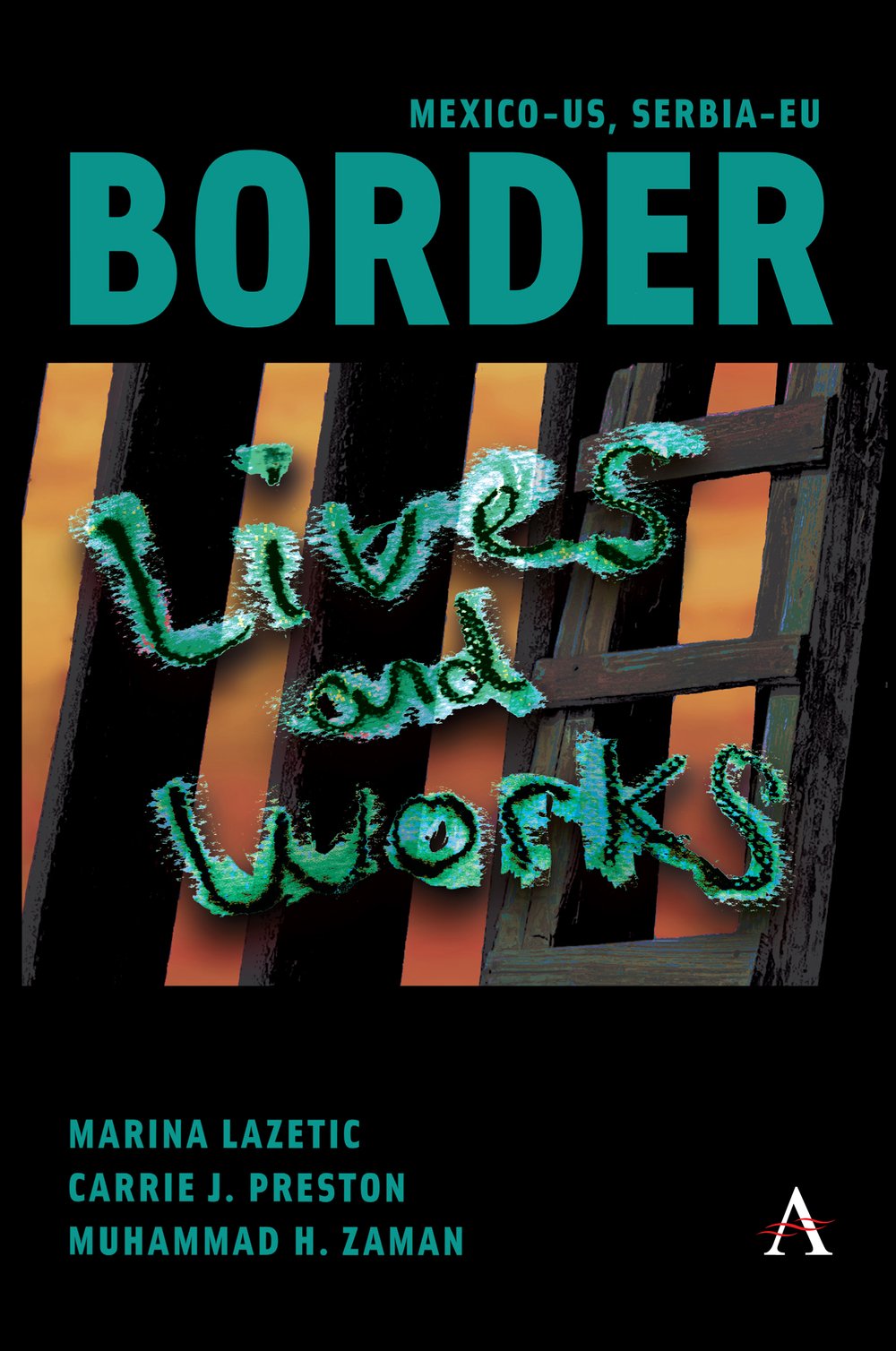Mexico-US, Serbia-EU Border Lives and Works

Mexico–US, Serbia–EU Border Lives and Works is an interdisciplinary, accessible, and comprehensive study of Mexico–US and Serbia-EU border practices and policies.
Our interdisciplinary, collaborative team of scholars, artists, and migration practitioners tackle crucial questions about how these borders impact people on the move, host communities, and the nations that grapple with the borders they enforce, politicize, celebrate, and mourn. Through chapters rooted in the growing fields of critical forced displacement studies and critical border studies, this edited volume considers the spaces inhabited by migrants in Mexico and the Western Balkans, the manifestations of various forms of violence (structural and physical), the models of care implemented at these sites, the protests and activism they inspire and forms of creativity that emerge and survive in border regimes.

Marina Lazetic is the director of programs at the Center on Forced Displacement at Boston University and a PhD candidate at the Fletcher School, whose research focuses on civil society response to migration and securitization of borders.
Carrie J. Preston is a professor of English and Women’s, Gender, & Sexuality Studies and associate director of the Center on Forced Displacement at Boston University. Her current writing advocates for the field of critical forced displacement studies as a rubric for understanding art and activism in an age of global mobilities.
Muhammad H. Zaman is an HHMI professor of Biomedical Engineering and Global Health and the director of the Center on Forced Displacement at Boston University. His current research focuses on health systems, barriers, and access to healthcare among forcibly displaced communities.
